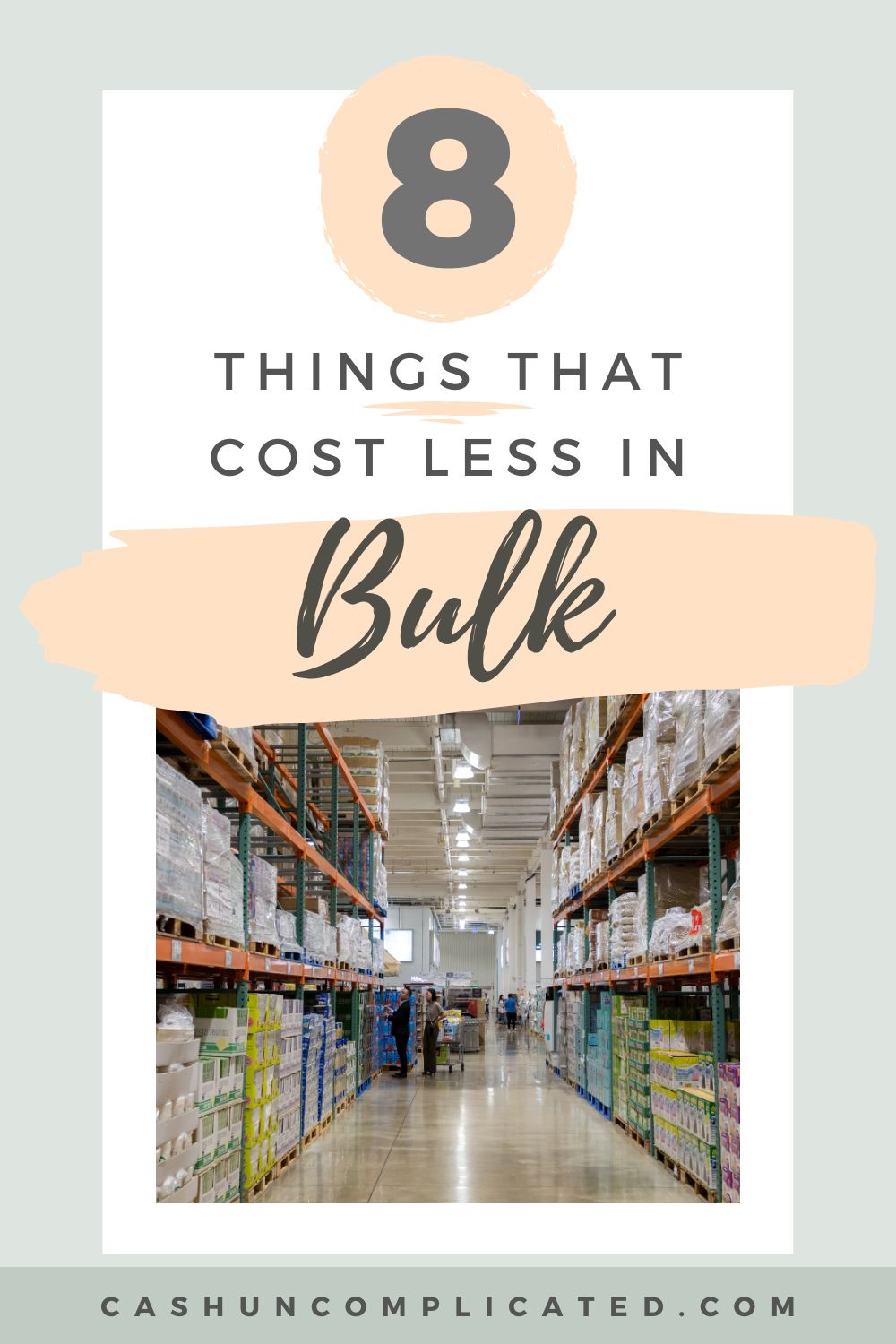Sounds counterintuitive, but sometimes it can actually be good to increase your spending. This seems like a strange concept and may seem contrary to what you’ve learned about personal finance.
In the personal finance space, there is a disproportionate amount of time and energy focused on saving money by cutting back. Cut this, cut that, then cut back again. Once you cut back enough, you’ll finally have enough money to invest or pay off lingering debt many people say.
I myself am a big proponent of cutting back on things you don’t value. It’s a fast and easy way to give yourself an immediate raise. If you don’t value a magazine subscription, I advocate getting rid of it. Same as an unused gym membership, “jelly of the month club” subscription, or going out to lunch five days a week when you’re just as happy bringing a bagged lunch.
There are times in life though where it’s actually good to increase our spending. Personal finance is about more than just money. It’s about improving our lives through the choices we make, many of which involve money.
There are many great things in life that are free or cost almost nothing; a walk outdoors, hugging your kids, a family bike ride, among various others. There are also many things of value that cost money. Food, shelter, education and transportation to name a few.
Sometimes you have to spend more to improve your life. These are six of my top ways it’s actually good to increase our spending.
1). It Buys You Time
It’s possible to buy time. Tasks such as cooking, cleaning, yard work, and laundry all take time. Those are also all things we can hire out. By “hire out”, I don’t mean that we do nothing around the house, or hire a live-in housekeeper.
What I mean is that we can hire out the things that cost us the most time. For example, if you’ve got a large yard with grass to cut, bushes to trim, and leaves to pick up, it might be worth hiring out. Completing the yard work might take two to four hours per week.
Paying a gardener to come every week could conceivably save you well over eight hours per month. That’s extra time you can spend with the kids, participate in a hobby, go out for the day with the family, or whatever you want to do.
If it would benefit you financially, you can also work extra to make up the money being paid to the gardener. Here’s my logic: if a gardener costs $40 per week, that’s $160 for the month. Hiring the gardener saves you a minimum of eight hours per month, which comes out to $20 per hour ($160/8).
If you can work extra in your job and make more than $20 per hour, it’s highly worth considering hiring out the work. This formula works whether you are in a regular W2 job, in sales, or own your own company. Calculate your hourly wage and use that amount to determine your hourly worth.
I have a whole chapter dedicated to highest and best use of time in my book Cash Uncomplicated.
Much like the yardwork example, go through your tasks and determine if it’s worth it to buy time by hiring it out. If cooking takes you a half hour per night and you get to hang out with the family, involve your kids, and you enjoy it, that’s probably not something you’ll want to hire out.
But if deep cleaning the house is something you really don’t like doing and it costs you a lot of time, you might want to hire that out monthly.
2). Investing in Education
Education is valuable and usually costs money. Education can mean formal education like college or grad school, or self-education like books, seminars, programs, etc. Education opens doors and creates abundant opportunities.
This is a worthwhile endeavor to spend on. Each dollar that you put into education should pay off tenfold, assuming you take action on what you are learning. There are even books and programs on how to take action—so we should all be able to learn this, even if we’re not naturally action oriented.
Think about a leading book on real estate investing. The two best real estate investing books I’ve read are the The Millionaire Real Estate Investor by Gary Keller and The Book on Real Estate Investing by Brandon Turner.
For a very reasonable price, I learned a tremendous amount about purchasing, negotiation, cash flow, appropriate reserves, and so much more that goes into buying rental properties. Both of those books have saved me countless hours and money. Sure, there was a small upfront cost to purchasing these books, but they both continue to pay off exponentially.
Or think about a great book on becoming a skilled negotiator, such as Never Split the Difference by Chris Voss, my personal favorite on the subject. Learning the principles in a book like this can take your business and career to new heights. Negotiation plays such an enormous part in everyday life; any improvements in the area will greatly pay off.
3). Replacing Unhealthy Foods With Healthy Foods
It’s kind of a cruel trick, but it’s usually more expensive to eat healthier. Whether it’s from the store or at a restaurant, salmon with rice and vegetables is going to cost more than a burger and fries. A home cooked vegetarian meal costs more than items on the dollar menu at fast food restaurants. A big bag of chips from the store costs less than fruits and vegetables.
The list goes on and on. To make it even more challenging, unhealthy foods taste better to a lot of people and often take less time to prepare. Eating healthy requires intentionality and commitment.
I’m not a doctor or nutrition expert but it doesn’t take a medical degree to recognize the benefits to healthier eating. In my opinion, paying more to buy healthier foods is well worth it. Everyone has their non-negotiables, and that’s one of mine.
4). Replacing Unhealthy Habits With Good Habits
Oftentimes it’s easier and less expensive to maintain an unhealthy habit than a healthy habit. It’s less expensive to sit on the couch all day than to buy a gym membership or join a health club. It’s also less expensive to sit your kids in front of a tablet than sign them up for a sports league.
There are plenty of healthy habits and activities that are free or cost very little. Jogging, outdoor exercise, and biking are all examples. But there are also healthy activities that cost money. Many people like the structure of a sports league or a spin class at the gym. Those things cost money.
If you are the type of person who does better joining a league or class, cost shouldn’t necessarily prohibit you from joining. There are plenty of ways to save money, it shouldn’t have to come at the sacrifice of your health and wellbeing.
5). Anything That Improves Your Everyday Life
This is kind of an all-encompassing category. Anything that improves your everyday life is worth increasing your spending on. Of course, it has to be within reason. A 20 million dollar house may greatly improve your life, but if you make $30,000 a year, that’s not realistic at this time.
If you and your spouse or partner bought a small couch when you first started living together and now have a couple kids, it’s probably worth it to purchase a couch everyone can fit on. Or if you cook a lot, it would improve your life to replace the old pots and pans with nice cookware that heats up faster and cleans easier.
If you use your two-year old smartphone mainly to text, check email, search the internet now and then, and listen to music, it’s probably not worth upgrading to the newest model. As long as your phone is working fine, nothing in the new model will improve your everyday life. But if you have a need for the most updated phone, it’s probably worth it to spend the money.
This category is highly individualized; it’s really up to you to determine what will greatly improve your life. It goes back to the concept of value-based spending, which is a central theme in my book and blog.
6). Easily Achievable Experiences and Travel
All too often people put off travel, experiences, and dreams for another time.
- “Next year, when…”
- “When the kids are a little older.”
- “When I retire.”
- “As soon as the kids are out of the house.”
- “After I get a raise.”
Now is the time to take many of the trips and get the experiences on your list. I’m not saying to give yourself a free pass to take extravagant vacations when you’re already on a shoestring budget. But there are probably a lot of trips and experiences you can do now.
With a slight increase in your travel budget, you’ll have enough to drive to a couple of the national parks you’ve always wanted to see, spend a weekend in the mountain town you’ve never been to, take a week in the American Southwest, or see the fall colors.
Take some time to think about what you want to experience, and where you want to go. See if you can make that happen by slightly increasing your monthly travel budget. I think you’ll be surprised at some of the possibilities with just a small increase in spending.









This Post Has One Comment
Pingback: 5 Not So Obvious Things Money Can Buy – Cash Uncomplicated
Comments are closed.